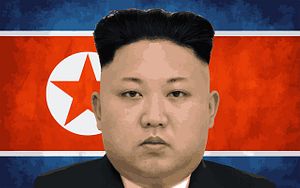On Sunday, a Trump administration official said that the “U.S. has confirmed that Kim Jong Un is willing to discuss the denuclearization of the Korean Peninsula,” according to the Wall Street Journal.
The confirmation follows what seems to be weeks of backchannel diplomatic efforts between the United States and the North Korean government, with the U.S. effort being led primarily by the Central Intelligence Agency (CIA).
Though the CIA as a choice to lead diplomatic outreach to North Korea might seem odd at first glance, President Donald Trump has chosen to nominate current CIA Director Mike Pompeo to take over at the State Department.
Should all go well with Pompeo’s confirmation, he should be in place by the time of a prospective summit meeting between Trump and Kim.
Hearing that the U.S. has confirmed Kim’s willingness to discuss “denuclearization of the Korean Peninsula,” however, is far from a surprise.
As several analysts of Korean peninsula affairs have noted — including Clint Work here at The Diplomat — that phrase can be a hairy source of ambiguity and disagreement.
It remains unclear if Trump recognizes what “denuclearization of the Korean peninsula” might entail for the United States.
Though Kim Jong-un has yet to clarify what steps he has in mind for the United States and South Korea, it’s highly likely that in order for any concessions from the North Korean side, Kim will request serious modifications to the U.S. presence on the Korean peninsula.
Either way, “denuclearization,” in the sense that Kim means it, does not equate to what the United States has long sought on the Peninsula: the complete, verifiable, and irreversible denuclearization of North Korea.
In South Korea, meanwhile, there are growing signs that Moon Jae-in’s government is about to enter its own summit with Kim Jong-un — the third inter-Korean summit later this month — with a different set of assumptions.
One anonymous Blue House official was quoted by the JoongAng Ilbo as noting that “If one insists the North must carry out complete, verifiable and irreversible disarmament as a pre-condition for dialogue, then we are going back to the status-quo.”
South Korea shows little interest in urging North Korea toward a so-called Libya-style disarmament deal, which is a nonstarter in Pyongyang anyway, where the word “Libya” alone is interpreted more as a threat than a good faith offer for talks.
Amid all this, on Monday, John Bolton will be coming in to fill Lt. Gen H.R. McMaster’s shoes as Trump’s advisor on national security affairs.
Bolton, in a March interview, said that his preference will be for precisely a Libya-style settlement of North Korea’s nuclear program, which remains both unrealistic and dead on arrival.
If the United States insists on more onerous preconditions in the coming weeks, the Trump-Kim summit could yet be derailed — and daylight between the United States and its South Korean ally on the proper path ahead with North Korea could broaden.
































